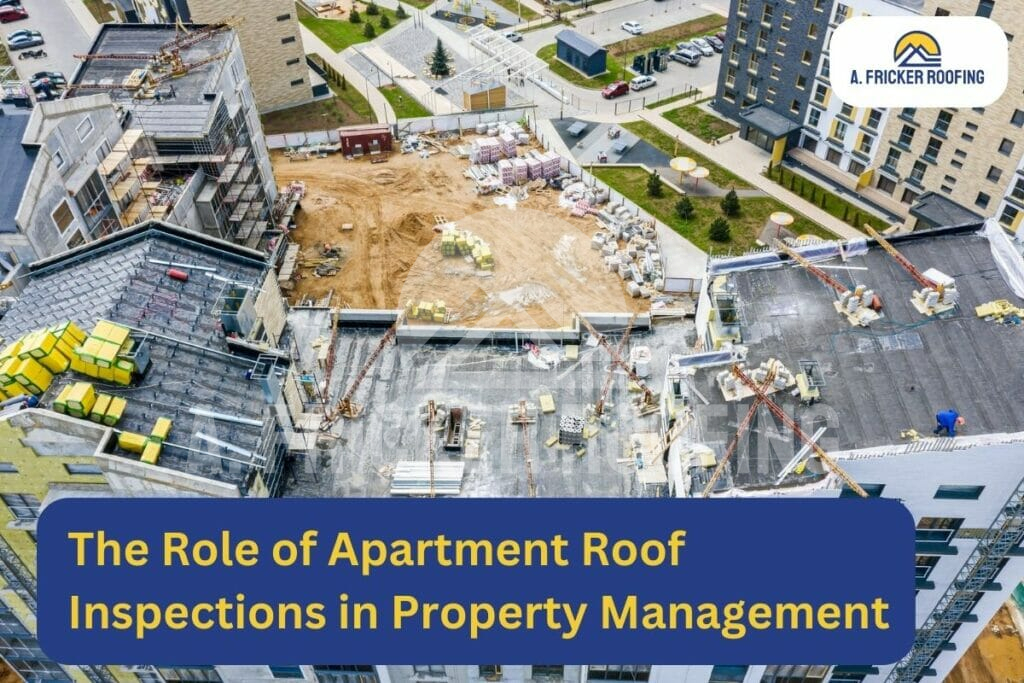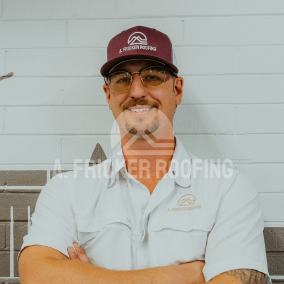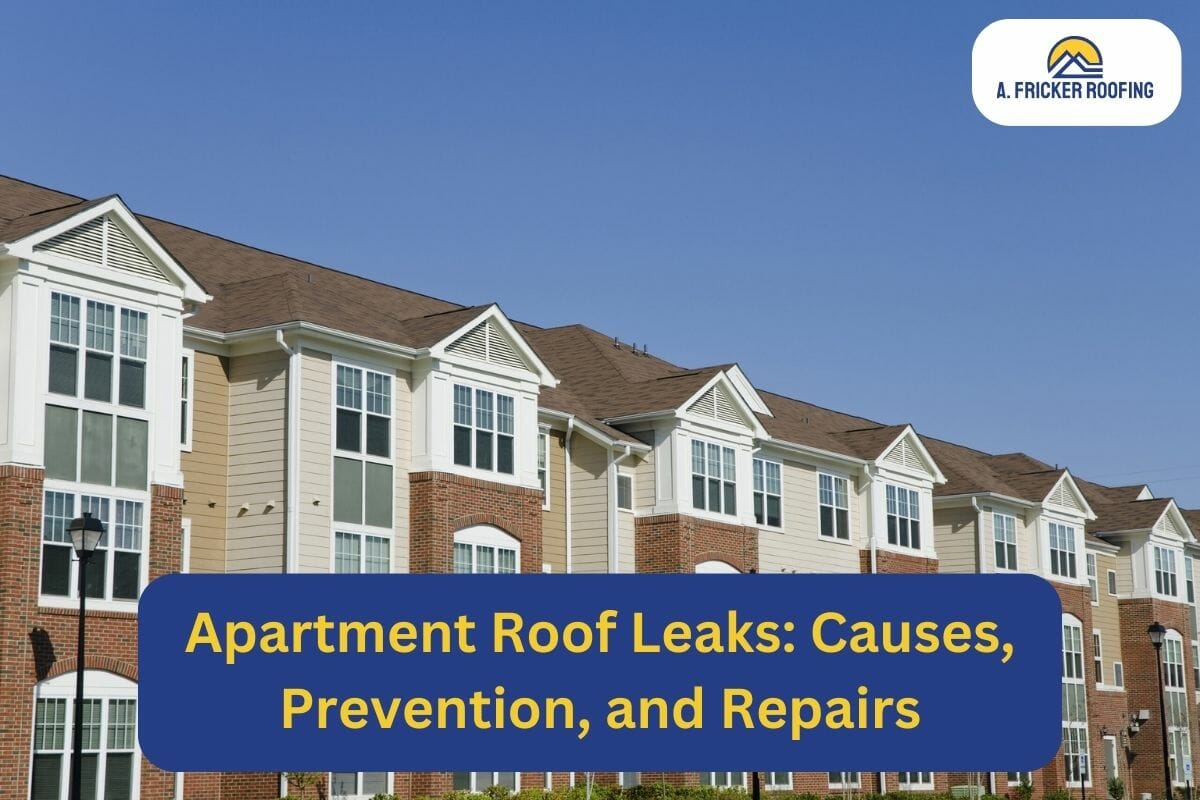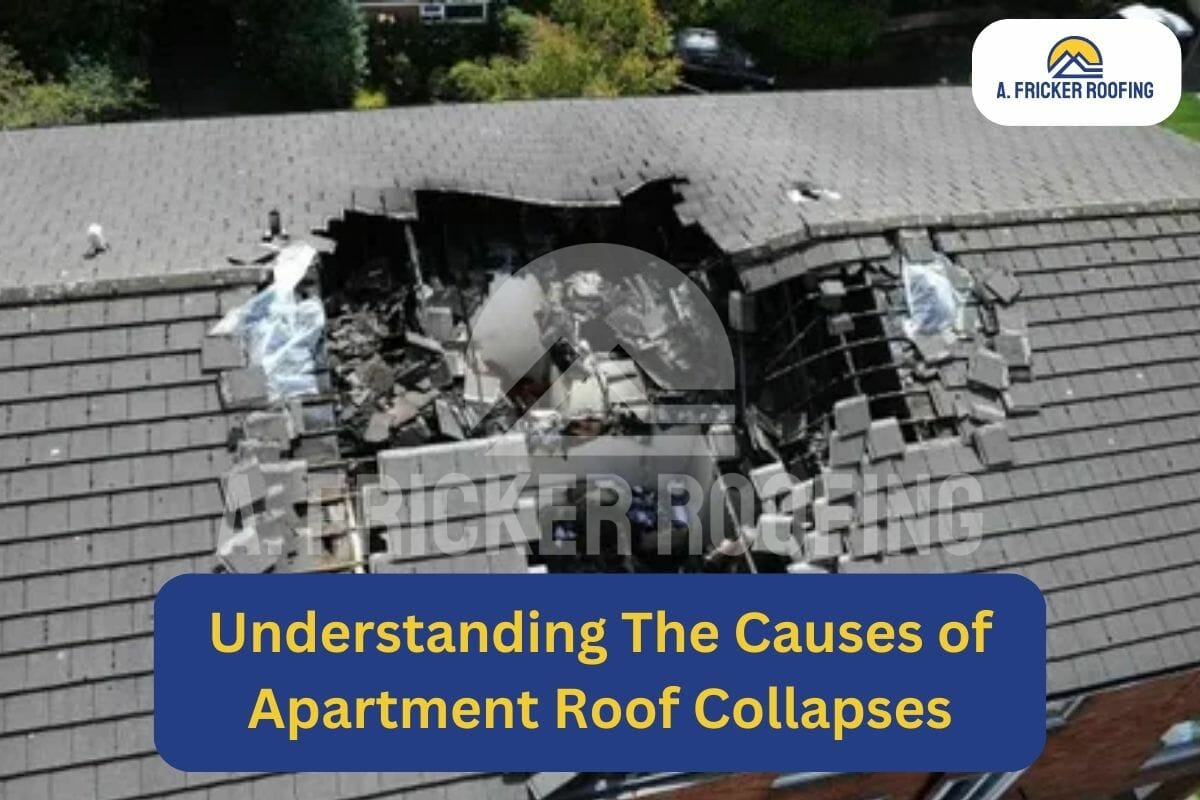
While an apartment roof inspection may not be the most glamorous part of managing a property, the condition of the roof plays a crucial role in ensuring the overall well being of a building. In this article, we’ll delve into the importance of apartment roof inspections in property management and provide valuable insights for property managers on how to maintain and improve their roofs effectively.
So, whether you are a tenant looking to take on the role of property management or the owner of an apartment building, understanding the property manager’s role in every aspect, including roof maintenance, is crucial.
Understanding The Role of Apartment Property Management
From paying attention to the most intricate details to required construction or roof replacement, apartment property management takes care of everything involved in the maintenance and management of the building.
Moreover, apartment property management encompasses a diverse range of responsibilities. These duties include tenant screening, lease management, prompt addressing of tenant concerns, collecting rent, and managing budgets and financing But other routine maintenance tasks, such as repair coordination, and regulatory compliance, uphold the property’s physical integrity.
What Does An Apartment Roof Inspection Involve?
Though there is no step-by-step procedure for apartment roof inspections, property management generally follows these steps to assess the condition of and the damage on apartment roofs.
1. Initial or Exterior Assessment
The exterior inspection is a regular part of a roof inspection that measures the condition of the roof and finds any damage. During this phase, inspectors look for any visible signs of damage or wear and tear. They might pay attention to the roof’s general appearance, checking for sagging areas, missing shingles or tiles, and any obvious signs of debris accumulation.
2. Safety Precautions
Roof inspections can be hazardous, mainly on pitched roofs. Due to their sloped nature, safety precautions are very important. Before climbing onto the roof, inspectors must ensure they are properly equipped with safety gear such as harnesses, helmets, and non-slip footwear.
3. Interior Inspection
Roofs, over time, may experience damage that involves missing and damaged shingles, roof sagging, moisture related issues, and water leaks. Along with the exterior inspection, interior inspections are equally important. An interior roof inspection starts by checking for signs and water stains along the ceiling, walls, and attic. The management team also looks for water stains, mold growth, dampness, and potential apartment roof leaks. This approach helps inspectors pinpoint areas of the roof that may require closer examination.
4. Roof Surface Examination
The core of a roof inspection involves a comprehensive examination of the roof’s surface. The specific tasks within this phase may vary depending on the type of roofing material used, such as asphalt shingles, tiles, metal, or flat roofing membranes such as EPDM or TPO. Inspectors carefully look for cracks, missing pieces, or any signs of wear and tear. They may also evaluate the quality of the installation, assessing whether the roofing materials are properly secured.
5. Flashing and Seals
Roof penetrations, such as vents, chimneys, and skylights, are potential weak points in the roofing system. Inspectors closely examine the condition of flashing to ensure they are working properly. Any cracks, gaps, or deteriorated seals can lead to water infiltration, which can cause significant damage over time if not addressed promptly.
6. Gutters and Drains
Proper water drainage is critical for roof longevity. Inspectors check the gutters and downspouts for debris. Clogged and blocked gutters can hinder water flow and cause backups. They also verify that these elements are securely attached to the building and effectively direct rainwater away from the structure, preventing water from accumulating on the roof.
7. Ventilation
Adequate roof ventilation is essential to prevent moisture buildup in the attic and under the roofing materials. The roof inspector examines the condition and functionality of ventilation systems. Poor ventilation can lead to issues like mold growth, decreased energy efficiency, and a reduced lifespan for the roof.
The Role of Apartment Roof Inspections In Property Management
1. Regular Roof Inspections
As shown above, property managers are responsible for scheduling and conducting regular roof inspections. These inspections help identify any signs of damage, wear, or deterioration early on. Roof inspections can prevent minor issues from turning into expensive problems.
2. Maintenance Planning
Based on the findings of roof inspections, property managers are responsible for creating maintenance plans for the roof. This involves cleaning gutters, removing debris, sealing cracks, and replacing damaged shingles or roofing materials. This may further involve addressing any drainage issues. Regular maintenance extends the lifespan of the roof.
3. Budgeting for Roof Repairs and Replacements
Property managers include roof related expenses in their budgeting and financial planning. They allocate funds for routine maintenance, repairs, and, when necessary, roof replacements. Proper budgeting helps them ensure that there are sufficient resources available to address roofing issues promptly.
Also Read: Apartment Roof Repair 101: Common Issues And Quick Fixes
4. Emergency Roof Repairs
Amidst many weather events, such as heavy rain, storms, and hurricanes, apartment roofs can experience severe damage. This may result in an apartment roof collapse, leaks, and structural damage. Property managers must be prepared to respond to roofing emergencies promptly. The emergency situations may require them to tarp the roof and call a professional roofer to look into the severity of the damage. Timely responses minimize damage and potential safety hazards.
5. Contracting Roofing Professionals
Property managers often work with roofing contractors or companies to perform inspections, maintenance, and repairs. They are responsible for selecting reputable and qualified roofing professionals who can provide reliable services at a reasonable cost.
6. Tenant Communication
Property managers communicate with tenants if any roof repair is required. Direct communication helps tenants prepare in advance for any roofing work. They inform tenants of upcoming inspections, provide guidelines for reporting roof related issues, and ensure that tenants are aware of any temporary inconveniences during roofing work.
7. Insurance Claims
Many forms of apartment roof damage can be covered by insurance. In the event of damage, property managers should file an insurance claim. They document the damage, coordinate with adjusters, and oversee the repair or apartment roof replacement process covered by insurance policies.
8. Record Keeping
Apart from applying for insurance claims and repairing the covered damage, property managers maintain detailed records of all roof-related activities. This documentation helps track the history of the roof’s condition and provides a basis for decision-making in the future.
9. Roof Replacement Planning
Roofs have a limited lifespan, and property managers should plan for roof replacements as roofing materials start to age. They assess the remaining life of the roof, gather quotes from roofing contractors, and coordinate the replacement project when the time comes.
10. Tenant Safety and Comfort
The property management team ensures the safety of tenants and residents. A well maintained roof prevents leaks, water damage, and other issues that can disrupt and negatively impact tenants’ lives.
Conclusion
In the world of apartment building ownership, property management plays a pivotal role. As the building owner, it takes the weight off your shoulders, ensuring your investment remains profitable and hassle-free. So, regardless if you’re a new owner or a seasoned professional, consider the valuable assistance of a property management company. They will make your life easier and your investment more rewarding.
Hire A. Fricker Roofing and Waterproofing In Tulsa, OK, For Your Apartment Roof Inspection And Repair
If you notice signs of damage to the roof of your apartment building during an inspection, consider hiring A. Fricker Roofing and Waterproofing in Tulsa, OK, to repair your apartment roof.
The roofing team will work on creating a maintenance plan with the apartment property management. This combination of professionals will ensure the safety of your roof and the tenants living below. Call us today at (918) 402-7167 and hire a professional team for your apartment roof inspection or repair.



